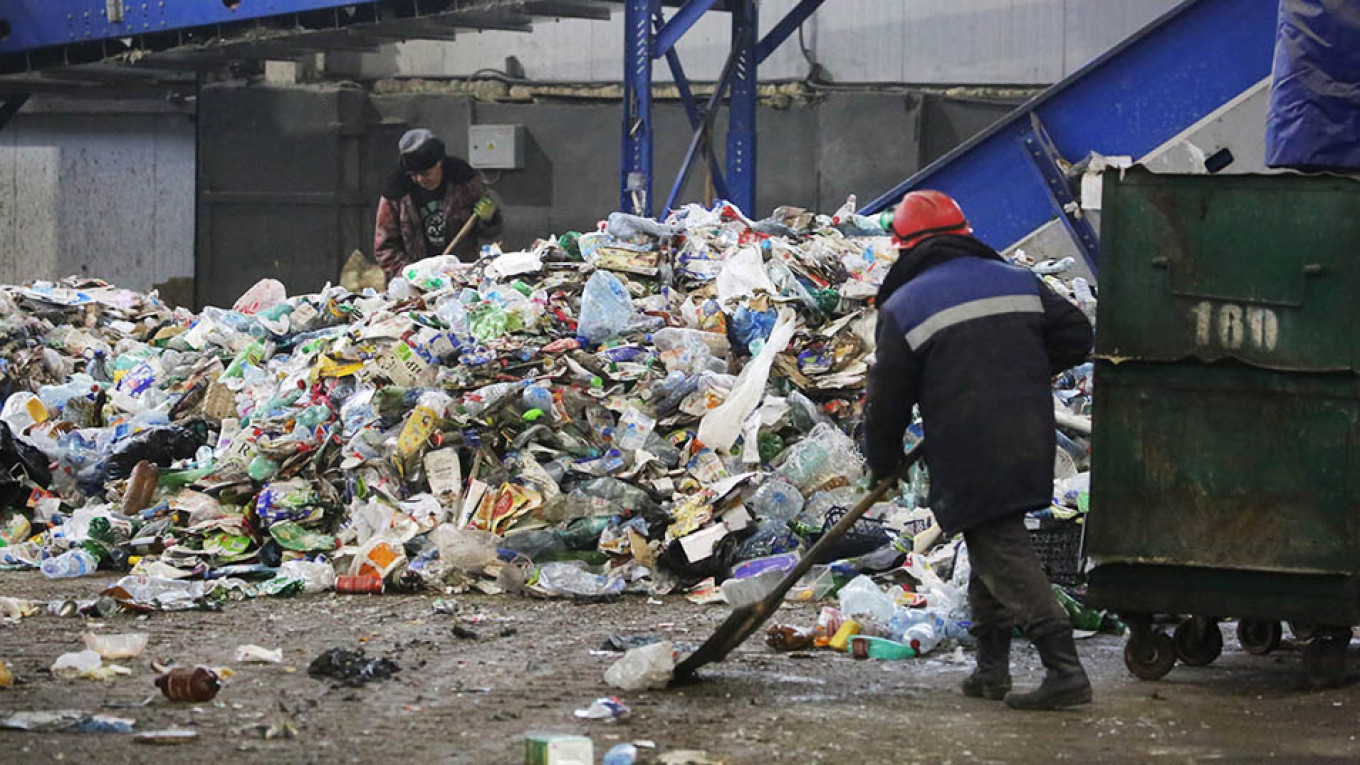Moscow city authorities will consider trash incineration to be a form of recycling, according to the city’s trash reform plan for 2020-2029 published Monday.
Moscow’s practice of exporting its waste to surrounding regions has riled Russian citizens over the past year, while nationwide trash reforms threaten to shut down garbage collectors in several regions. The trash crisis continues to intensify, with Moscow expected to generate 8 million tons of waste in 2019 compared to 7.8 million tons in 2018.
According to the document, Moscow’s trash will be disposed of in landfills or by recycling. The plan considers the burning of trash to be a form of recycling as long as it generates heat or electric energy, despite a law that would allow this still going through the State Duma.
The plan has been met with resistance among environmentalists, who say that burning trash will release harmful toxins and pollutants that never decompose into the environment. Alexey Kiselev, a zero-waste expert at Greenpeace, said he considers trash incineration to be an “ecological and technological absurdity in the 21st century.”
“It prevents the construction of a working recycling system and actually solving the problem [of waste],” he told The Moscow Times.
The plan also doesn’t include strategies for reducing the overall amount of waste generated.
According to Moscow’s plan, most of the city’s trash will be shipped out of the city to landfills in the Kaluga, Vladimir and Moscow regions.
Though there’s no mention of the controversial Shiyes landfill in the Arkhangelsk region where Moscow previously planned to ship its trash, it could be included in Moscow’s plan at any time if the authorities decide they need it, Kiselev told The Moscow Times.
The European Commission has advised against building trash incinerators, saying it equals a refusal to implement recycling facilities, Boris Morgunov, the head the ecology department at Moscow’s Higher School of Economics, told the Vedomosti business daily Monday.
A Message from The Moscow Times:
Dear readers,
We are facing unprecedented challenges. Russia's Prosecutor General's Office has designated The Moscow Times as an "undesirable" organization, criminalizing our work and putting our staff at risk of prosecution. This follows our earlier unjust labeling as a "foreign agent."
These actions are direct attempts to silence independent journalism in Russia. The authorities claim our work "discredits the decisions of the Russian leadership." We see things differently: we strive to provide accurate, unbiased reporting on Russia.
We, the journalists of The Moscow Times, refuse to be silenced. But to continue our work, we need your help.
Your support, no matter how small, makes a world of difference. If you can, please support us monthly starting from just $2. It's quick to set up, and every contribution makes a significant impact.
By supporting The Moscow Times, you're defending open, independent journalism in the face of repression. Thank you for standing with us.
Remind me later.






